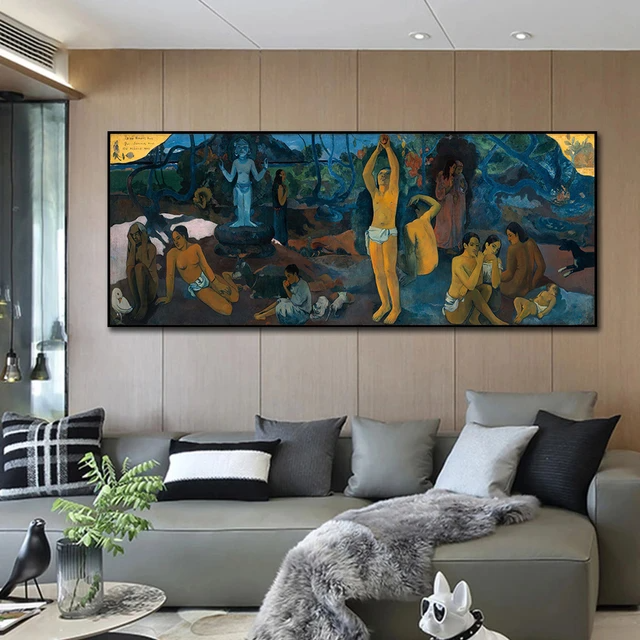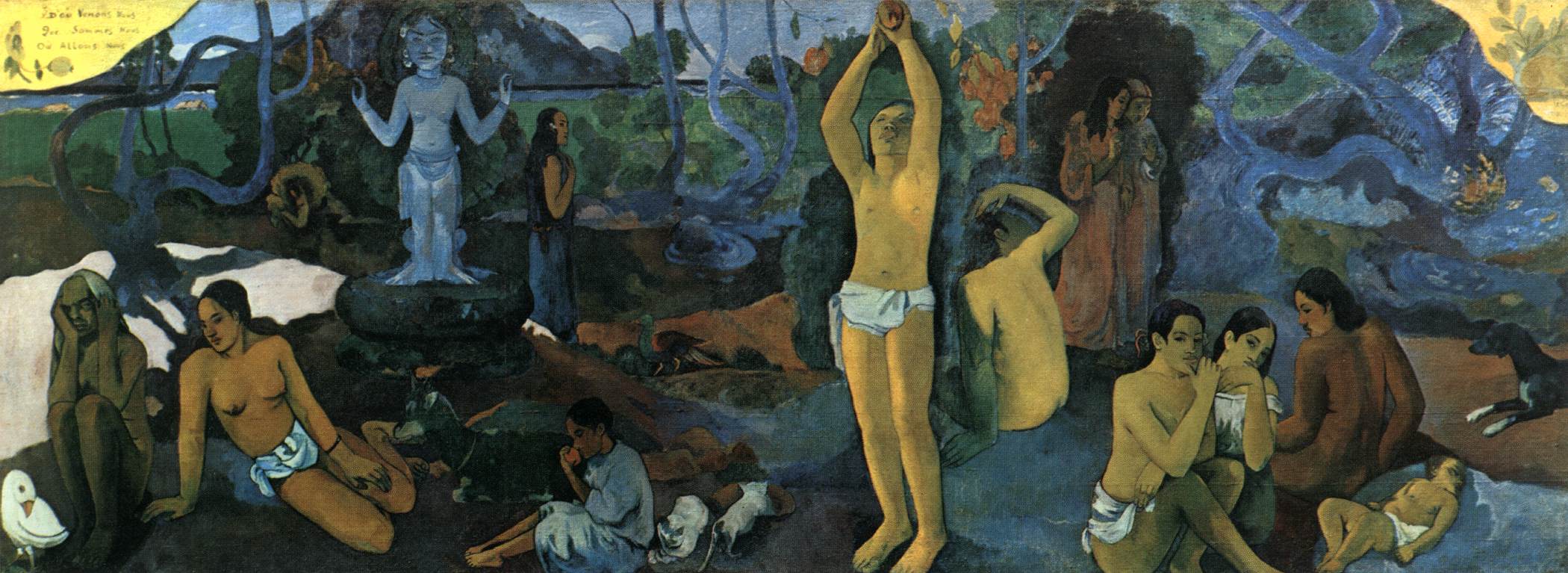Description
The painting "Where Do We Come From Who Are We Where Are We Going" by French artist Paul Gauguin is a masterpiece that ranks among the greatest in modern art. The painting, measuring 141 x 346 cm, was painted in 1897 in Tahiti, where Gauguin had settled in search of a simpler, more primitive lifestyle.
The painting is made up of a group of figures that appear to be at different stages of life, from babies to the elderly. The figures are arranged in a tropical landscape, with trees, flowers and a mountain in the background. The composition is complex and detailed, with each figure and object carefully placed on the canvas to create a sense of balance and harmony.
The use of color in the painting is vibrant and exotic, with brilliant shades of green, blue, and yellow evoking the natural beauty of Tahiti. The faces and bodies of the figures are painted in warm, earthy tones, which contrast with the exuberance of the landscape.
The painting is a reflection on life and death, and on man's place in the world. The title of the work suggests a search for answers to fundamental questions about our existence. Gauguin drew inspiration from Polynesian culture and his own search for a more authentic and meaningful life to create this masterpiece.
A little-known aspect of the painting is that Gauguin included a series of inscriptions on the canvas, believed to be personal reflections on his own life and his search for meaning. These inscriptions, which are written in French and Tahitian, add an additional layer of depth and mystery to the work.
In short, "Where Do We Come From Who Are We Where Are We Going" is a masterpiece of modern art that combines intricate and detailed composition with a vibrant and exotic use of color. The painting is a profound reflection on life and death, and on the search for meaning in an increasingly complex and bewildering world.





